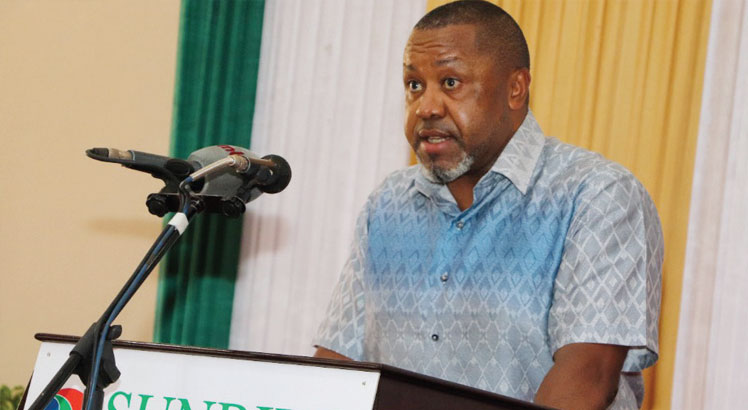Banks under fire over high interest
Commercial banks in the country have come under fire over high lending rates against low deposit rates offered to customers.
Vice-President Saulos Chilima yesterday made a fresh call to banks, telling them that “interest rates must come down and that is non-negotiable”.
Addressing the Economics Association of Malawi (Ecama) 2021 Annual Lakeshore Conference in Mangochi, he asked the Reserve Bank of Malawi (RBM) to consider capping the interest spread, the gap between lending and deposit rates.
Chilima, who is also Minister of Economic Planning and Development; and Public Sector Reforms, said it is important that if banks raise the lending rates, they must also pass the same to depositors.

Currently, banks are offering customers deposit rates as little as five percent while charging an average of 23 percent on loans.
Chilima described the current deposit rates as “too little”, saying banks can do better.
The Vice-President recollected that in the 1980s and early 1990s, Malawi had only two commercial banks and lending rates averaged 19.1 percent while deposit rates averaged 11.5 percent, providing a spread of 7.6 percent.
He said: “As the financial sector opened up, one would have expected competition to force the narrowing of the spread. Interest rates must come down. The Reserve Bank must engage banks on this.
“If moral suasion will not work, issue a directive. Otherwise, your efforts to develop Malawi will be derailed. As we speak, small and medium enterprises and businesses as a whole are not thriving.”
Chilima also submitted to the conference to ensure discussing “the wisdom” of capping the interest spread.
He said: “I am not talking of capping the lending or deposit interest rates, but their difference. In other words, if banks raise the lending rates, they must pass-through the same to the depositors who lend them the money in the first place.”
The call by Chilima to have interest rates slashed while also ensuring capping of interest rate spread, coincides with the resurfacing of the controversial Financial Services Act (Amendment) Bill in Parliament which proposes a regulatory measure to prevent banks and financial institutions from charging more than a certain level of interest.
The contentious Bill was introduced in November 2018 by former Dowa West legislator Alexander Kusamba Dzonzi.
In an exclusive interview with The Nation yesterday on the sidelines of the Ecama conference, RBM Governor Wilson Banda agreed with the observation by Chilima that over the years, interest rate spread has “progressively increased”.
He said: “I am fully sympathetic with what the Veep said. Malawi banks are extremely and highly profitable. Their operating costs are being absorbed by these high spreads between lending and deposit rates.”
Banda said banks attribute the disparity to high default rates and high non-performing loans.
Currently, non – performing loans within the banking industry have improved to around five percent from above 20 percent two years ago, according to RBM statistics. Banda said the central bank, in the past, engaged the banks on the general outcry about high fees and charges, adding that similarly, the central bank is ready to engage the banks on the complaints about high spread.
Quizzed on whether RBM would consider issuing a directive to banks on the need to narrow the spread as suggested by Chilima, Banda said: “Issuing a directive would be draconian. But indeed the law empowers us to issue directives, but today’s world you have to ensure a cordial working relationship as a regulator.”
In a separate interview, Ecama president Lauryn Nyasulu said the issue of interest rate spread requires immediate attention by policy makers.
She noted that over the years, the role of banks in facilitating the real sector “has been thwarted”, adding that the association plans to meet banks and all other relevant stakeholders to relook into the issue of high spread “seriously.”
Bankers Association of Malawi executive director Lyness Nkungula had not yet responded to our questionnaire as we went to press, despite reminders through the association’s public relations office.
In 2016, the Keny an parliament passed a Bill capping interest rates in the country at four percent above the central bank rate which at the time stood at 10 percent.
This effectively meant that Kenyan banks were not allowed to charge interest rates more than 14 percent.
However, the central bank of Kenya vehemently opposed the interest capping Bill, arguing it was an infringement of its independence.
The bank also argued that the success for an economy is hinged on a regulator who can enforce monetary policies without external influence.





